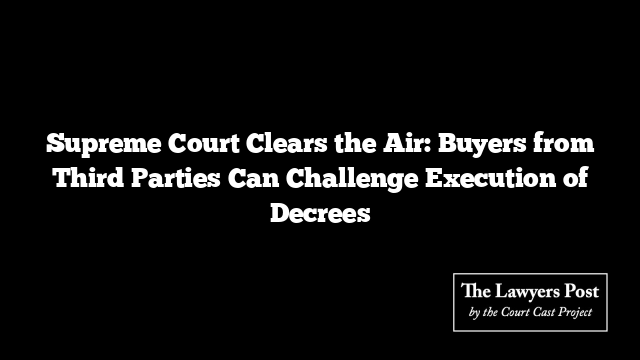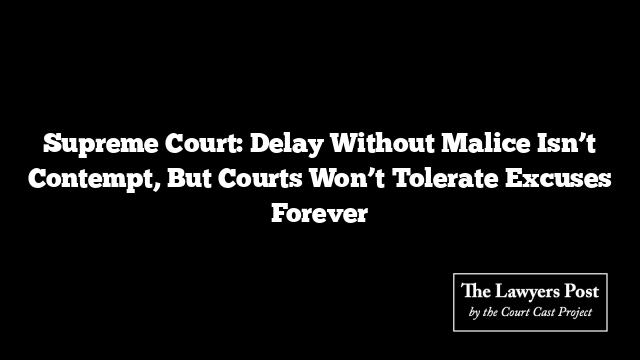In a ruling that reshapes how property disputes are handled during decree execution, the Supreme Court has clarified that the bar under Order XXI Rule 102 of the Code of Civil Procedure does not apply to those who purchased property from third parties unconnected to the judgment-debtor.
The Court drew a sharp line: Rule 102 only ties the hands of those who bought property directly from the judgment-debtor during the pendency of litigation. Anyone who derives ownership through an independent chain of title—not from the judgment-debtor—retains the right to raise objections under Order XXI Rules 97 to 101.
The bench of Justices Vikram Nath and Sandeep Mehta was dealing with a case where the appellant had bought the disputed property from M/s Rizvi Estate in 2007. Rizvi Estate itself had acquired the property nearly two decades earlier from the original owner, Mrs. Misquita. Since neither Rizvi Estate nor Mrs. Misquita had been parties to the original suit, the Court held that the appellant’s ownership could not be brushed aside under the bar of Rule 102.
The judges explained:
-
Rule 102 is designed to prevent judgment-debtors from frustrating decrees by transferring property to accomplices during ongoing litigation.
-
But where the property flows through a legitimate chain starting from an independent owner, the transferee retains the protection of Rules 97–101 and can lawfully resist execution.
The Bombay High Court had earlier dismissed the appellant’s objections, but the Supreme Court set that aside, calling him a bona fide buyer with rights to defend his title.
“The appellant does not trace his title to the judgment-debtors but to a third party who derived ownership from the original owner. In such a scenario, the bar under Rule 102 cannot apply,” the Court ruled, directing the executing court to adjudicate the objections and bring the matter to its lawful conclusion.
The decision underscores a key principle: Rule 102 is a shield against fraudulent transfers by judgment-debtors—not a sword to cut down legitimate ownership acquired through independent transactions.




